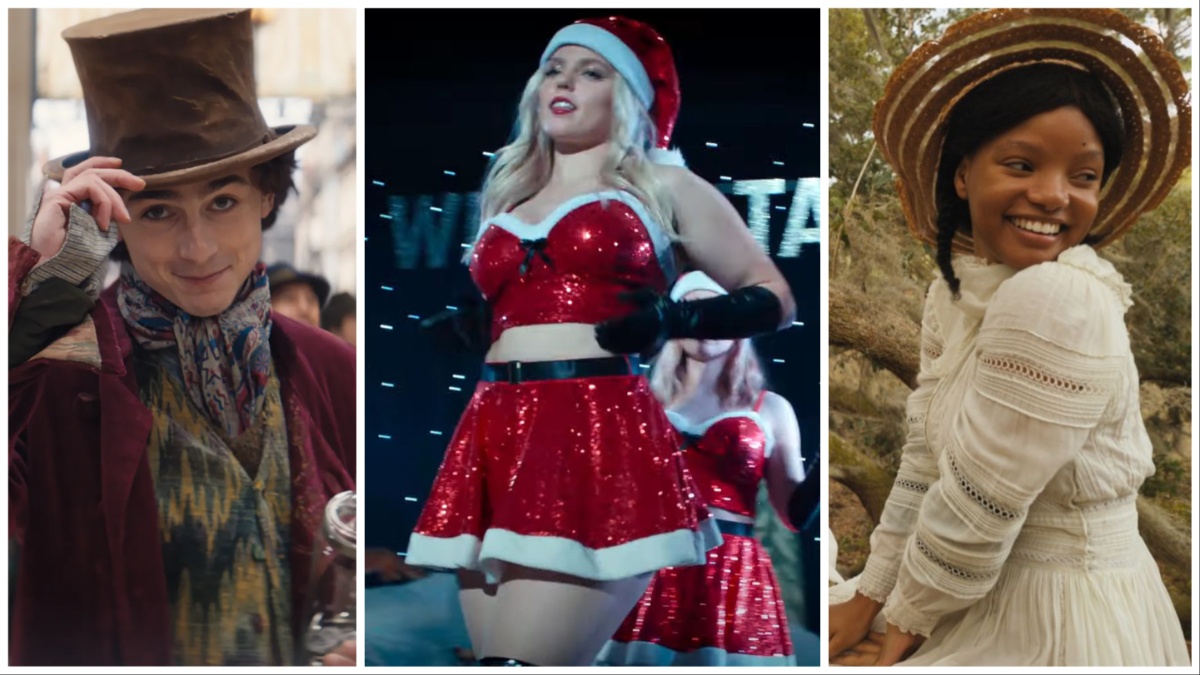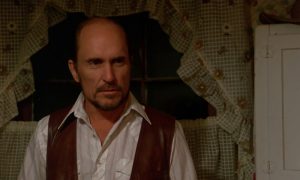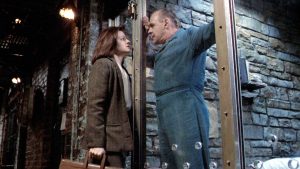
The Mean Girls remake—this time with showtunes—was a big win for Paramount Pictures over a long holiday weekend in the States. A film originally pegged and budgeted for Paramount+ until someone realized folks still love the 2004 classic (shocker!), this economical redo of the Lindsay Lohan touchstone galloped to an impressive $33.2 million across its first four days. That matches practically all of its reported $36 million budget right out of the starting gate.
So the movie studio has reasons to pop champagne this week (and maybe send a few bottles over to Reneé Rapp for her diva turn as Gen Z’s very own Regina George). Nonetheless, even audiences who enjoyed what was a pretty down-the-middle reworking of a 20-year-old staple had to be a little peeved by how some fellow moviegoers reacted. Because, speaking purely anecdotally, it seemed like a lot of folks were put off by the whole musical part of this musical remake.
In the above social post, you hear audiences groaning as bright-eyed Angourie Rice breaks into song. While that video is an extreme example, we personally know folks who had similar experiences of audiences chuckling or sighing loudly when another musical number got going. It even makes one wonder if possibly unexpected tunefulness affected the movie’s reception.
According to CinemaScore, the industry pollsters who gauge how much audiences enjoyed a movie on opening day, those who showed up to Mean Girls ’24 awarded the film an anemic “B” grade; it’s a fatally ambivalent rating that usually presages bad word-of-mouth. We will not know if that is entirely borne out until next weekend. However, the fact that Mean Girls’ box office dropped from Friday to Saturday by 19 percent—an unusual phenomenon for what is ostensibly a youth-skewing release—suggests audiences are at least somewhat mixed.
Which brings us back to those TikTok-famous hecklers. It should be noted the scene that was recorded is not the first musical sequence in the film or even the first time Rice sang. But it still came on the same day as many audiences learned Mean Girls ’24 is actually an adaptation of the Broadway transfer of the same material. Indeed, Rapp even played Regina George on stage shortly after its 2018 debut in New York, singing the same Jeff Richmond and Nell Benjamin songs in the new film, and repeating Tina Fey’s lines which have made a kind of Sisyphean journey from film to stage, and then back to film again.
Whether or not you are a fan of Broadway’s now ubiquitous habit of turning popular movies into musicals, you must at least give theater producers credit for telling their audience upfront that this Barbie has songs. It’s something Paramount was a lot more coy about when it came to marketing Mean Girls. Case in point, no one clearly bursts into song once during the movie’s multiple trailers. We hear songs from the Mean Girls musical song list, and we see characters who are obviously performing a musical number, but if you didn’t know to look for that (or were only glancing at the trailer on your phone), you might assume some of these moments are from dance parties. Hence the only semi-sung line where one mean girl announces she is having a “dance break” before she and fellow cool kids bust a move. Otherwise, these could all just be more of Cady’s fantasies (like something to do with a school bus in the original).
The marketing is having it both ways. It winks at the theater kids that, yes, your favorite songs from the original cast recording will be in the movie, even as it plays them simply as a typical background trailer track. Meanwhile, the uninitiated are being promised a Mean Girls retelling that will be “different,” even if it’s never made clear exactly how.
This has become a common trend in the past year, as the trailers for Warner Brothers’ The Color Purple and their Willy Wonka prequel, Wonka, remained remarkably bashful about the singing and dancing. Wonka trailers suggested Timothée Chalamet would have a big song and dance number when selling chocolate, but as many reviews attested (including our own), it was a genuine surprise when the movie started with Willy crooning the very first line of dialogue.
These deliberate marketing choices have a definite logic, cowardly though it may be. A few years ago, some splashy, expensive, and unapologetic musicals crashed and burned at the box office, with Jon M. Chu’s delightful In the Heights and Steven Spielberg’s spellbinding West Side Story reimagining flopping. The Dear Evan Hansen movie also went up in flames, but to be fair, Dear Evan Hansen is terrible. Still, conventional wisdom now states musicals are box office poison, so studios believe they should hide that element from audiences.
Maybe they’re right too. Based purely on numbers, all three musicals that came out in the last month found their audiences whereas Heights and West Side didn’t. But it seems useful to point out those 2021 movies came out during the first awkward “post-pandemic” year, with audiences still staying largely away from cinemas except for Marvel movies. Considering that reality two and a half years later already hints at how much audience tastes have changed again. Meanwhile it wasn’t that long ago when unabashed musicals were some of the biggest non-franchise hits of their years. La La Land made almost $500 million in 2016, and 2017’s The Greatest Showman crossed $170 million in the U.S. alone.
Those movies were on the rosier side of the pandemic, but many of this generation of moviegoers are obviously not turned off by the genre the way their parents or grandparents were in the 1970s and ‘80s. Hell, for some viewers, musicals could just be sold as a series of TikTok videos strung together by a story with characters and emotions. And to Hollywood’s credit, Wonka, The Color Purple, and Mean Girls all found audiences. But how nice might it be for those audiences if they knew what they were signing up for? It might help the perception of the films and their word-of-mouth after those front-loaded opening days too.
The post Studios Need to Stop Pretending Their Musicals Aren’t Musicals in Trailers appeared first on Den of Geek.








